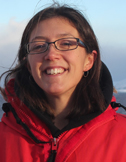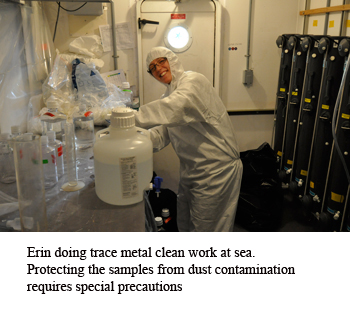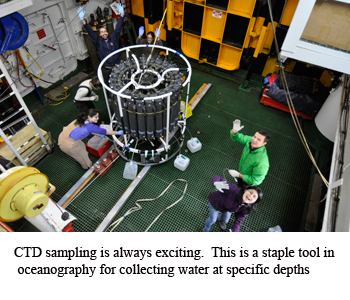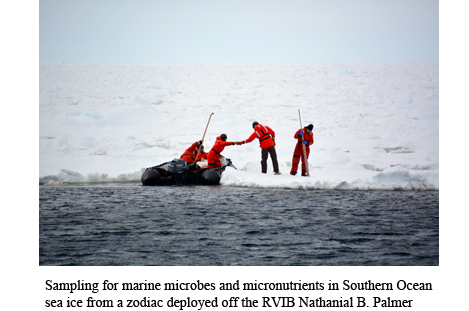Erin Bertrand
 |
Associate Professor, Tier II CRC Chair in Marine Microbial Proteomics BSc: Bates College, Lewiston Maine (2005) PhD: MIT/WHOI Joint Program (2012) US NSF Polar Programs Postdoctoral Fellow, J. Craig Venter Institute and Scripps Inst. Oceanography |
|||||
 esearch: esearch:Background: Oceanic microbes conduct a range of functions that are essential for the maintenance of life on earth, including the production of half of the oxygen in our atmosphere and the synthesis of organic carbon that supports fishery resources. The goals of my research program are advance our understanding of what controls these important marine microbial processes.  Marine microbes, just like humans, require micronutrients such as iron, zinc and vitamins for survival. In the oceans, these micronutrients are largely scarce and their concentrations vary by orders of magnitude over short time and spatial scales. There is competition for these limited resources, but there are also ways in which microbes cooperate to share, produce and consume micronutrients efficiently. Goals: My research program will focus on developing new tools to understand (1) when and where in the ocean the availability of these micronutrients shapes how much oxygen and carbon are produced in marine ecosystems, (2) how organisms cooperate or compete to make the most of these scarce resources and (3) how relationships between important groups of marine microbes are driven by demand for these micronutrients. Techniques: This work requires extensive laboratory culturing and examination of marine microbes, including phytoplankton and bacteria, under defined conditions. Results from laboratory studies will be used to design and implement measurements reflecting micronutrient demand and supply in natural communities in the ocean, with field sites including the Antarctic Southern Ocean and the Scotian Shelf. The information gained through these studies will contribute novel insights into how productivity will change in the ocean, how this may impact fisheries resources, and the potential for harmful algal blooms. Students who work in my laboratory will gain skills for developing innovative protein diagnostics, advanced microscopy, and microbial culturing approaches. These skills will be of use in future careers in basic research as well as environmental monitoring, biotechnology, and the health sciences.
|
||||||

 g microbial communities in the Scotian Shelf
g microbial communities in the Scotian Shelf